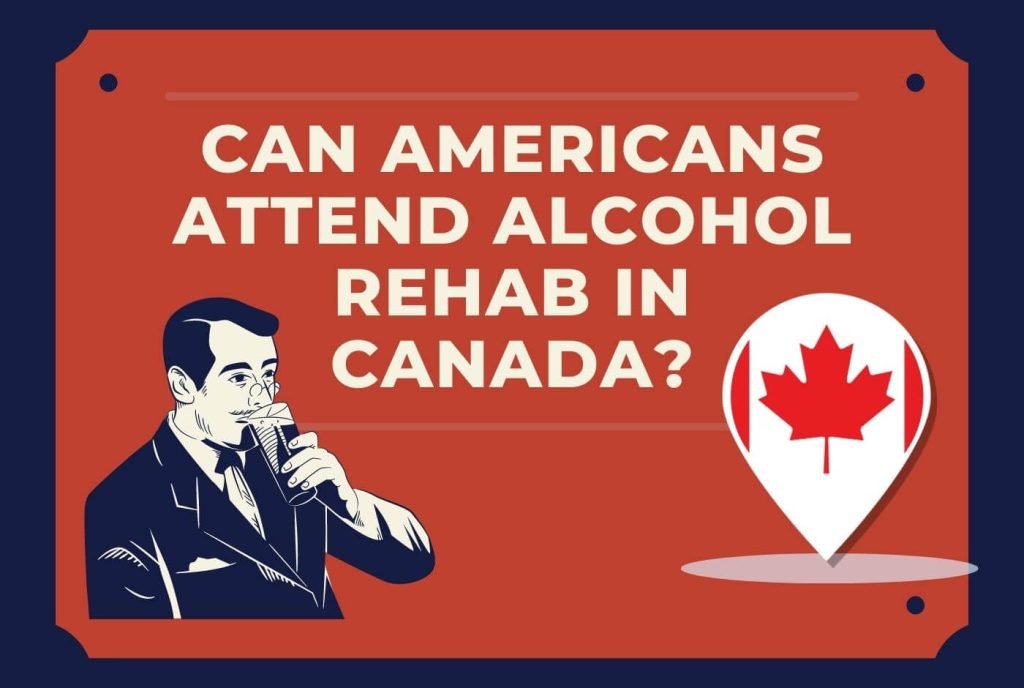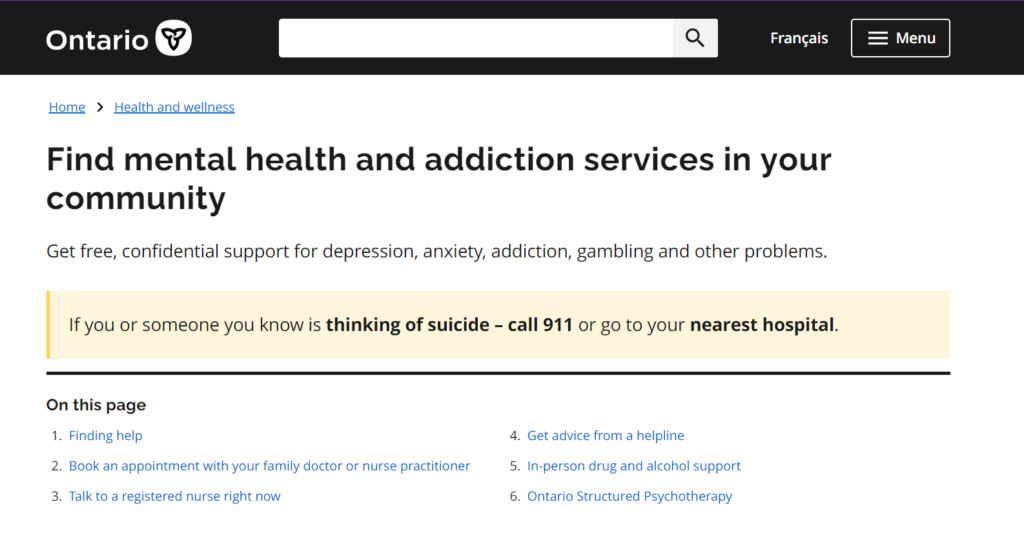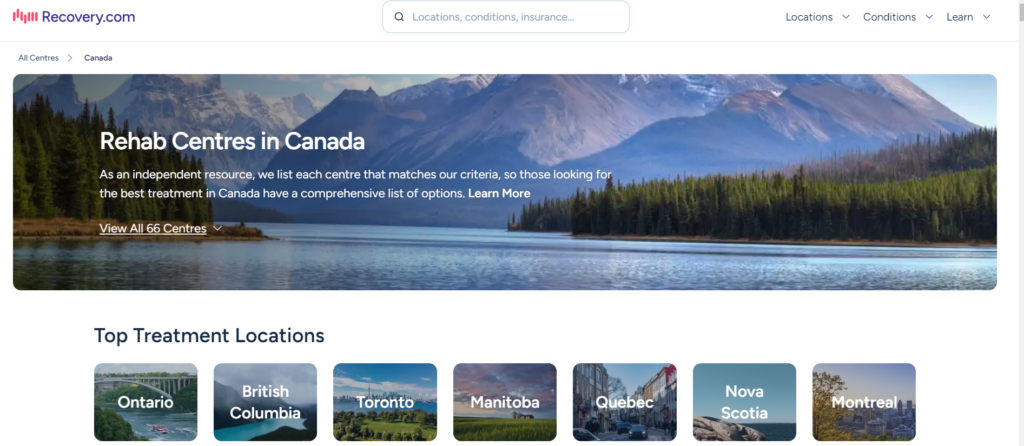In my clinical experience, I have observed an increase in American patients seeking alcohol rehab in Canada. Over 50% of persons in low- and middle-income nations do not obtain rehab. This may be due to a variety of factors, including the accessibility and affordability of rehab programs in Canada compared to the United States. Additionally, the alcohol rehab visitor policy in Canada may be more accommodating and supportive of patients’ needs, making it a more attractive option for those seeking treatment. Overall, the trend of American patients seeking alcohol rehab in Canada highlights the importance of addressing barriers to rehab access and the need for more comprehensive and inclusive policies.
But it’s better to attend one than not attend.
Let me share an anecdote that illustrates you can attend rehab with proper identification anywhere most of the time.
One of my childhood friends Andre had to move to Canada due to university admission, and he was about to get into alcohol rehab. He had to go through some steps to get admitted to a rehab in Canada.
Let’s dive into the blog to get a more precise idea about attending alcohol rehab in Canada.
Requirements for Attending Alcohol Rehab in Canada: Find the Roots

You must meet several criteria before crossing the border and enrolling in recovery. Those include-
Getting a TRP for Rehab in Canada
If an American has a DUI or other alcohol-related offense, they may not be allowed to attend alcohol rehab Canada. They require a TRP to enter Canada.
A TRP lets you stay in Canada for a specific time and purpose, like alcohol recovery.
An application form, a letter from the rehab center, a copy of your criminal record, and proof of rehabilitation are required to apply for a TRP.
Processing costs CAD 200. TRP processing times vary by scenario and Canadian visa office. It can take weeks or months, so apply early.
Finding Rehab: Remove Barriers
Finding the best rehab abroad is another crucial step. 22.3 million Americans—9% of adults—recover from substance-use disorders.
Canada offers inpatient, outpatient, holistic, faith-based, and gender-specific recovery programs. Before choosing, investigate and compare choices.
You can select from the websites too. Source: ontario.ca

When picking a recovery program, consider the following:
- Program cost and length
- Facility accreditation and reputation
- Staff credentials and experience
- Treatment methods and therapies
- Aftercare and support services
- The facility’s surroundings
The Canadian Centre on Substance Use and Addiction (CCSA), your doctor, therapist, or support group can recommend you to rehab Canada facilities.
Traveling/Transporting
Travel to Canada after getting a TRP and finding a recovery facility. You may need to fly, train, bus, or rent a car to get to rehab.
Check COVID-19 travel regulations, including testing, quarantine, and immunization. The Canadian government website has current information.
Pack your passport, TRP, travel insurance, prescriptions, clothing, toiletries, and personal stuff. Leave aside booze, narcotics, and paraphernalia that may persuade you to drink.
Medical Data Preparation
Prepare your medical records before entering Canadian alcohol treatment. Bring copies of your medical records, prescriptions, test results, and other health documentation.
Inform your doctor and therapist that you are going to alcohol rehab in Canada and ask for suggestions. Ensure you have enough medication and follow the directions to get to treatment.
Homecoming
When it comes to a country, common misconceptions often arise.
Based on my experience, the major takeaway is demonstrating solid ties to your native country and a desire to return after your brief stay in Canada is a TRP requirement.
To prevent you from using alcohol rehab to immigrate or overstay in Canada. You should show proof of job, property, family, or other US ties.
Necessary Documents:
- A letter from your employer stating your position
- Salary Certificate
- Expected return date
- A copy of your lease agreement or mortgage statement
- Marriage certificates
- Children’s birth certificates
- Bank statements and tax returns
Post-Rehab Planning
Post-recovery plans are the final phase for best rehab abroad.
After treatment, you must return home to continue your healing. Consider how you will stay sober and avoid relapse in your familiar surroundings.
Consider these:
- Finding a local therapist or counselor to assist you in dealing with addiction-related mental health difficulties
- Joining a support group or 12-step program to share your experiences and gain encouragement from others in similar situations
- Avoiding people, places, and events that may tempt you to drink
- Developing healthy habits and interests to fill your time and offer you purpose and fulfillment.
- If you feel stressed or tempted to drink, ask family, friends, or professionals for support.
Things to Consider Before Checking into Canadian Addiction Rehab
Canada has a world-class healthcare system and innovative addiction treatment. 40% – 60% of addicts will relapse within one year. Before you pack your bags and head north, consider these.
Preparing for Canadian Addiction Rehab
Desired recovery program. Canada offers inpatient, outpatient, residential, and day rehab programs.
Depending on your choices, each offers pros and cons. Find the best solution through research.
Rehab Cost
Foreigners pay for Canadian rehab. You or your insurance will pay for treatment. Rehab costs vary by type, duration, and location. If you can afford it, compare pricing.
It costs $10K – $30K for a month.
Rehab Location
Canada is huge and has many climates. Choose a recovery program in a place you like and feel comfortable. Consider travel costs and distance from home.
You can find them on these sites too.
Source: Recovery.com

Your Insurance: Save Pocket
US health insurance may cover addiction treatment in Canada. From my years of experience I noticed the insights, some insurance policies cover the expense, while others do not.
Check with your insurer.
Your Backup
Rehab abroad is difficult and lonely. You will be away from relatives and friends who can help you recuperate.
Consider how you will handle the separation and if anyone may visit or stay in touch.
Sobriety Ready
Motivation and dedication to sobriety are the most critical factors before entering rehab. Rehab can not heal addiction overnight.
It takes time, effort, and dedication. You need to face your problems and create constructive adjustments.
Congratulations if you determined that alcohol rehab in Canada is the best option after considering all these factors!
People Also Asked
How much does Alcohol Rehab Cost in Canada?
Residential treatment programs cost CAD 14,787 per participant, while outpatient programs cost $2,266 as the Canadian Centre on Substance Use and Addiction reported.
Canada’s alcohol treatment costs vary by program kind, duration, and location.
Is Alcohol Rehab Tax Deductible in Canada?
Yes, alcohol rehab is tax deductible in Canada as a medical expense.
However, you can only claim the amount that exceeds 3% of your net income or CAD 2,397, whichever is less.
The Canada Revenue Agency allows you to claim the cost of licensed addiction treatment for yourself or a dependent. You can also claim treatment-related transportation, meals, and lodging if you have to stay nearby.
Alcoholism impacts millions of Americans. Those who desire to escape their reliance and reclaim their life can get support.
Some Americans may seek alcohol rehab in Canada, where they can find high-quality, affordable facilities that meet their needs. Travel constraints, legal concerns, insurance coverage, and cultural differences limit this choice. Thus, to achieve long-term recovery, alcohol addicts must consider all treatment choices. Additionally, those seeking alcohol rehab in Canada should also consider the availability of alcohol disposal options within the facilities they are considering. Proper disposal of alcohol may be an important factor for individuals committed to maintaining their sobriety. It is important to thoroughly research and consider all aspects of alcohol rehab before making a decision.
- What to Pack for 30-Day Rehab? FREE Checklist - May 30, 2024
- Types of Outpatient Rehab: Difference One Should Know - March 28, 2024
- Truth Behind FMLA: Hidden Hurdles of Alcohol Rehab Leave - March 28, 2024